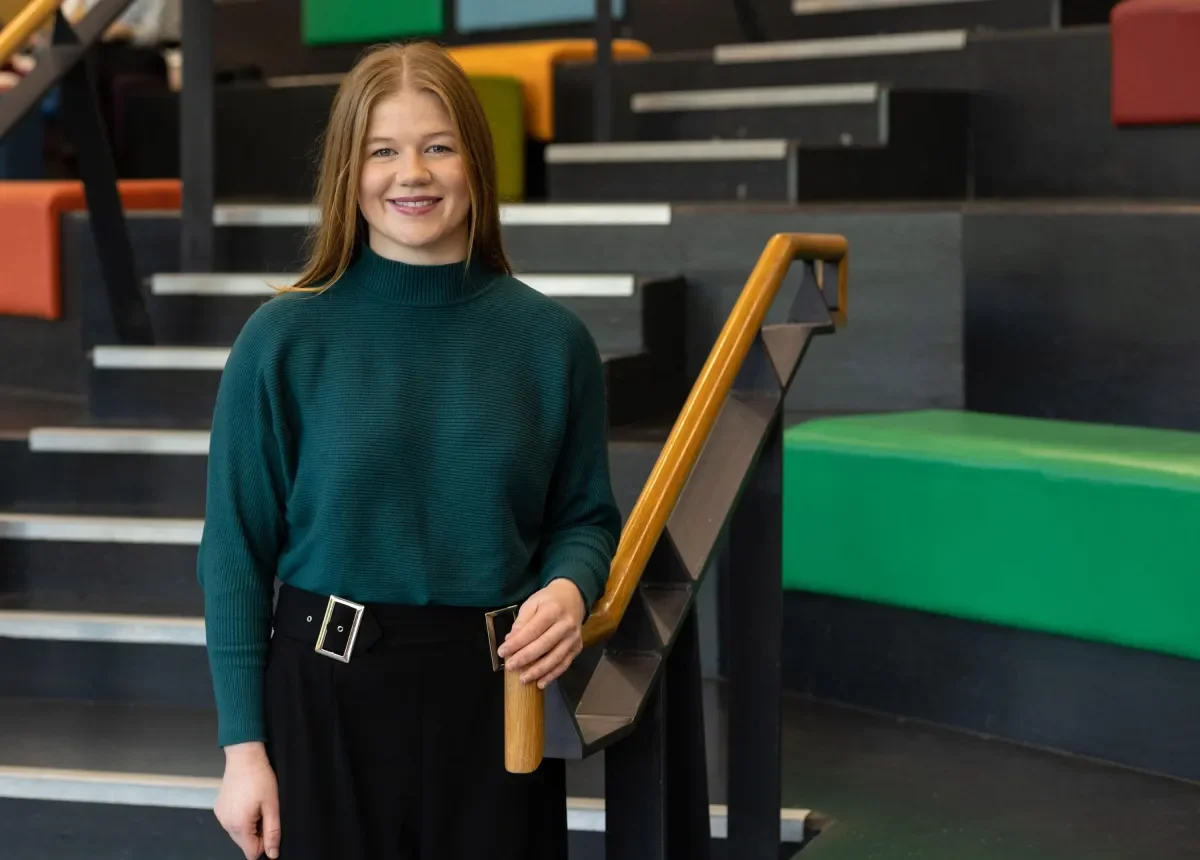

The 2023/2024 recipient of the Orla Benson Postgraduate Scholarship is Grace Colley
The annual memorial scholarship offered by the Benson family is awarded to a student demonstrating outstanding potential in the field of Biotechnology. Since its inception, this generous award has been instrumental in forging collaborations, disseminating research, and ultimately making breakthroughs across various fields of biotechnology research.
Research
Grace is part of the Eustace Research Group, headed by Assist. Prof. Alex Eustace based in the Life Science Institute at DCU. Funded by the Health Research Board (HRB), Grace’s work aims to uncover mechanisms of resistance to inhibitors of the PI3K signalling pathway and identify effective drug combinations to best treat triple-negative breast cancer (TNBC) patients.
PIK3CA is mutated in ~15% of TNBCs resulting in activation of the oncogenic PI3K/AKT signalling pathway. Mutated PIK3CA can be targeted by the PI3K inhibitor, Alpelisib. Despite this, results from clinical trials of Alpelisib have proven PIK3CA mutations can be poor predictive biomarkers of response, meaning that there may exist an additional cohort of genes and proteins which may play a role in response to Alpelisib. Identifying and targeting these novel predictive biomarkers may offer new treatment strategies for these patients.
Previous research has shown that the master oncogenic regulator TP53 can control activity of PIK3CA and the PI3K/AKT pathway. TP53 is frequently mutated in TNBC (~80%) resulting in loss of function of TP53 which results in oncogenic activation. As TP53 can regulate PIK3CA, it is also possible that mutated TP53 may influence therapeutic response to Alpelisib. Dual-targeting of a PIK3CA/TP53-mutated cohort of TNBC cancers with alpelisib and relevant FDA approved drugs may therefore result in an improved treatment strategy for TNBC.
USA
Grace intends to use the Orla Benson award to visit the laboratory of Professor Joshua LaBaer, who is based in the BioDesign Insitute, Arizona State University (ASU). Whilst in ASU Grace will analyse a unique panel of breast cancer cell lines which were genetically manipulated to express the ten most common TP53 mutations found in breast cancer patients.
Grace will analyse the differential effects of each individual mutation on response to her novel combination of drugs. During her stay Grace will be exposed to new methods of laboratory and bioinformatic analysis, which will significantly contribute to the quality of results in her Ph.D. project.
Grace also hopes to use the award to attend the American Association for Cancer Research (AACR) Annual Meeting 2024 which is being held in San Diego. The AACR meeting is the focal point meeting of the worldwide cancer research community, where scientists, clinicians, survivors, patients, and advocates gather to share the latest advances in cancer science and medicine. Grace hopes to have the opportunity to disseminate her own research findings stemming from her visit to ASU to a wider audience and connect with pioneers in the field cancer research.
“I am honoured and grateful to be the recipient of the Orla Benson Memorial Scholarship. I would like to extend my sincere gratitude to the family and friends of Orla Benson for both this generous donation and their commitment to support aspiring researchers like myself,” said Grace.
